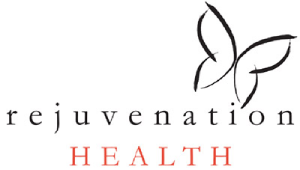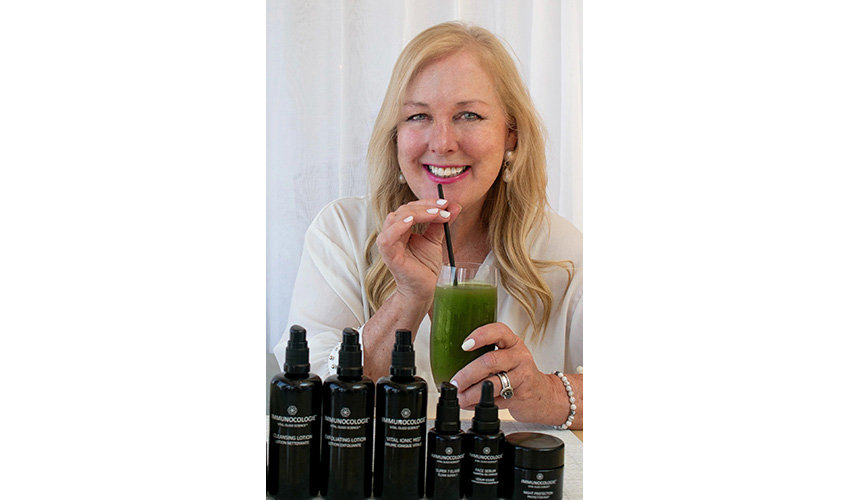Nutrition is a key component of good oral health, and a diet rich in minerals and vitamins can promote healthy teeth and prevent gum disease.
What is the best vitamin for teeth? The best vitamins for teeth are:
- Calcium
- Phosphorus
- Potassium
- Zinc
- Vitamin A
- B vitamins
- Vitamin C
- Vitamin K
These vitamins and minerals all work together to prevent oral diseases. You can get them from dietary supplements, but it is often more effective to incorporate these essentials into your diet.
What vitamins help prevent cavities? Vitamin D, vitamin C, vitamin A, phosphorus, and calcium can all help prevent cavities in different ways.
Related readings – How Your Oral Health Impacts Your Heart Health
1. Calcium
Calcium is one of the most important minerals in the body for strong teeth and bones. A calcium deficiency can lead to tooth loss and periodontal disease over time, not to mention diseases affected by bone mineral density like osteoporosis.
You should aim to get your daily recommended dose from natural sources of calcium.
How can I get more vitamins for teeth? You can get more vitamins for teeth by eating a healthy, balanced diet and taking supplements as needed.
All supplements may not offer the same benefits, though, and calcium supplements may even be harmful for some. Talk to your health care provider before adding a calcium supplement to your diet.
Major sources:
- Dairy products like milk, cheese, and yogurt
- Leafy greens like spinach and collard greens
- Tinned fish like sardines
- Beans and lentils
- Almonds
- Sesame and chia seeds
- Rhubarb
- Figs
- Soy products like edamame and tofu
- Fortified cereals
2. Phosphorus
Phosphorus helps your body absorb calcium and support healthy tooth enamel. Together with calcium, phosphorus may help remineralize teeth over time. This doesn’t just mean strong teeth. Gradual tooth repair can result in a whiter smile and less tooth sensitivity.
You can get to a healthy daily dose of phosphorus with a balanced diet, but a supplement can close nutrition gaps. Note that some multivitamins already include phosphorus.
Many processed foods like sugary sodas and fast foods contain high levels of inorganic phosphorus. This isn’t what you want as part of a healthy diet, and most of these foods are bad for your teeth.
Major sources:
- Dairy like milk, yogurt, and cheese
- Salmon
- Red meat and poultry
- Egg yolks
- Eggs
- Legumes
- Nuts
- Potatoes
- Whole grains
3. Potassium
Healthy levels of potassium are linked to a reduced risk of serious gum disease, dental plaque, and harmful bacteria in the mouth. Most healthy adults are able to get enough potassium from a balanced diet because it’s found in so many foods.
In cases of true potassium deficiency, there may be something else at play affecting absorption, like a magnesium deficiency or kidney disease. Supplements may help boost potassium levels in those cases.
Major sources:
- Beans and lentils
- Dried fruits
- Leafy greens like Swiss chard, bok choy, and turnip greens
- Bell peppers
- Dairy and plant milks
- Acorn and butternut squash
- Tomatoes
- Bananas
- Avocadoes
- Oranges
- Cashews and almonds
- Cherries
- Melons
- Fish like herring, cod, and sardines
4. Zinc
Much like vitamin C, zinc is an immune system booster with the added benefit of oral health support. Zinc may help prevent cavities and gum disease, but it is also used therapeutically for a variety of oral infections.
Zinc deficiency can impact your risk of gingivitis, reduce saliva flow, even affect your taste buds over time. A balanced diet is all most healthy adults need when it comes to zinc, but most multivitamins include a daily dose of the nutrient.
Major sources:
- Red meat and poultry
- Dairy products like cheese, milk, and yogurt
- Oysters
- Fish like salmon and sardines
- Eggs
- Legumes and lentils
- Beans
- Nuts
- Whole grains
5. Vitamin A
Vitamin A supports saliva production, important to cavity prevention and healthy gums. Dry mouth can increase your risk of gum disease, mouth sores, and halitosis. Healthy levels of vitamin A also support healthy mucous membranes, including those inside your mouth.
Many of the best sources of vitamin A are animal products. If you’re vegan or vegetarian, a supplement may help you get enough vitamin A.
Major sources:
- Leafy green vegetables like kale and spinach
- Orange and yellow vegetables like sweet potatoes and carrots
- Milk
- Cheese
- Melons
- Citrus fruits like grapefruit and tangerines
- Eggs
- Livers
- Cod liver oil
- Fish like salmon, mackerel, and tuna
6. B Vitamins
B vitamins, and especially B12, promote healthy wound healing. This includes oral sores and gum inflammation. B12 deficiency is linked to more cavities in children, swollen gums, even tooth loss over time.
Most foods rich in B vitamins are animal sources. Vegetarians and vegans may benefit from a supplement to maintain healthy levels, or seek out fortified plant sources of B vitamins.
Major sources:
- Beef livers
- Poultry
- Clams
- Fish like tuna and salmon
- Dairy like milk, yogurt, and cheese
- Eggs
- Fortified cereals or nutritional yeast
7. Vitamin C
Vitamin C is known for its immune system benefits, but it’s also important for healthy teeth and gums. It helps play a part in the health of your connective tissues, which can prevent bleeding gums and other gum diseases down the line.
This antioxidant also supports collagen synthesis. Healthy collagen production decreases as we age, raising the risk of tooth loss and oral infections. Fruits and vegetables are the best natural source of vitamin C, but a daily supplement can be supportive if your diet is lacking.
Major sources:
- Citrus fruits like grapefruit, kiwi, and oranges
- Tomatoes
- Bell peppers
- Melons like cantaloupe and papaya
- Strawberries
- Lychees
- Cruciferous vegetables like Brussels sprouts, broccoli, and kale
- Potatoes
8. Vitamin D
Vitamin D plays a role in calcium and phosphorus absorption, but it’s also important all on its own. The vitamin helps prevent tooth decay and supports tooth mineralization. A vitamin D deficiency can lead to periodontal diseases like gingivitis and bone density problems in the jaw.
Sunlight is a natural source of vitamin D, but it’s also found in a variety of foods. If you don’t think you’re getting enough vitamin D, a supplement can be a good addition to your overall oral care routine.
Major sources:
- Cod liver oil
- Fish like salmon, tuna, and sardines
- Fortified cereals, orange juice, and dairy
- Beef liver
- Egg yolks
- Dairy or plant milks
9. Vitamin K
Vitamin K is essential to blood clotting and protecting bone strength. That includes your teeth and bones in the face and jaw. Deficiencies may be the culprit behind bleeding gums.
Vegetable-rich diets are the best way to make sure you get enough vitamin K1 and vitamin K2, the main compounds responsible for oral health. Note that K2 often comes in a supplement with D3 for immune and bone health.
Major sources:
- Leafy veggies like kale, cabbage, and turnip greens
- Cruciferous vegetables like broccoli and Brussels sprouts
- Avocadoes
- Soybean and canola oil
- Natto (fermented soybeans)
Further Recommendations
What is the best way to strengthen teeth? The best way to strengthen teeth is to follow a daily oral care plan, maintain a healthy diet with vitamin- and mineral-rich foods, and keep regular checkups with your dental provider.
Good oral health means good overall health. Maintain good oral health in the following ways:
- Practice good oral hygiene. Brush using a toothpaste with natural ingredients like Revitin. Make sure you’re flossing regularly, too.
- Eat a nutrient-rich diet. We’ve already gone over the best vitamins and minerals for healthy teeth. A balanced diet is often all you need to get there.
- Avoid harmful foods. It isn’t just about adding healthy foods to your diet. Avoid too many processed foods and sugars for healthy teeth. Some should avoid high-acid foods, too.
- Schedule regular dental exams and cleanings. Find a dental care provider you trust and stick with regular checkups.
If you’re interested in a fresh, integrative approach to oral health, contact us at Rejuvenation Dentistry. We help our New York patients with a variety of dental care concerns, including dental anxiety after years of unsupported care.
For more on what we do, check out The Mouth-Body Connection, a book from the founder of our practice, Dr. Gerry Curatola. It explores the idea of oral health as a key component to overall health and wellness.
Sources
- Cagetti, M. G., Wolf, T. G., Tennert, C., Camoni, N., Lingström, P., & Campus, G. (2020). The role of vitamins in oral health. A systematic review and meta-analysis. International Journal of Environmental Research and Public Health, 17(3), 938. Full text: https://www.ncbi.nlm.nih.gov/pmc/articles/PMC7037089/
- Adegboye, A. R., Fiehn, N. E., Twetman, S., Christensen, L. B., & Heitmann, B. L. (2010). Low calcium intake is related to increased risk of tooth loss in men. The Journal of Nutrition, 140(10), 1864-1868. Abstract: https://pubmed.ncbi.nlm.nih.gov/20739448/
- Nishida, M., Grossi, S. G., Dunford, R. G., Ho, A. W., Trevisan, M., & Genco, R. J. (2000). Calcium and the risk for periodontal disease. Journal of Periodontology, 71(7), 1057-1066. Abstract: https://pubmed.ncbi.nlm.nih.gov/10960010/
- Reid, I. R., Bristow, S. M., & Bolland, M. J. (2015). Calcium supplements: benefits and risks. Journal of Internal Medicine, 278(4), 354-68. Abstract: https://pubmed.ncbi.nlm.nih.gov/26174589/
- Molaasadolah, F., Hosseinipour, Z. S., Afzali, F., Parhizkar, A., & Poorzandpoush, K. (2022). The effect of two calcium phosphate-containing agents on the enamel resistance of permanent molars to demineralization: An experimental study. Clinical and Experimental Dental Research, 8(6), 1533-1539. Abstract: https://pubmed.ncbi.nlm.nih.gov/35993588/
- Tallman, D. A., Sahathevan, S., Karupaiah, T., & Khosla, P. (2018). Egg intake in chronic kidney disease. Nutrients, 10(12), 1945. Full text: https://www.ncbi.nlm.nih.gov/pmc/articles/PMC6315879/
- Yost, S, Duran-Pinedo, A. E., Krishnan, K., & Frias-Lopez, J. (2017). Potassium is a key signal in host-microbiome dysbiosis in periodontitis. PLOS Pathogens, 13(6). Full text: https://www.ncbi.nlm.nih.gov/pmc/articles/PMC5493431/
- Uwitonze, A. M., Ojeh, N., Murererehe, J., Atfi, A., & Razzaque, M. S. (2020). Zinc adequacy is essential for the maintenance of optimal oral health. Nutrients, 12(4), 949. Full text: https://www.ncbi.nlm.nih.gov/pmc/articles/PMC7230687/
- Blakeley, M., Sobczyńska-Malefora, A., & Carpenter, G. (2020). The origins of salivary vitamin A, vitamin B12 and vitamin D-Binding proteins. Nutrients, 12(12), 3838. Full text: https://www.ncbi.nlm.nih.gov/pmc/articles/PMC7765569/
- Neiva, R. F., Al-Shammari, K., Nociti, F. H., Soehren, S., & Wang, H. L. (2005). Effects of vitamin-B complex supplementation on periodontal wound healing. Journal of Periodontology, 76(7), 1084-1091. Abstract: https://pubmed.ncbi.nlm.nih.gov/16018750/
- Hugar, S., Dhariwal, N., Majeed, A., Badakar, C., Gokhale, N., & Mistry, L. (2017). Assessment of vitamin B12 and its correlation with dental caries and gingival diseases in 10- to 14-year-old children: A cross-sectional study. International Journal of Clinical Pediatric Dentistry, 10(2), 142-146. Abstract: https://pubmed.ncbi.nlm.nih.gov/28890613/
- DePhillipo, N. N., Aman, Z. S., Kennedy, M. I., Begley, J. P., Moatshe, G., & LaPrade, R. F. (2018). Efficacy of vitamin C supplementation on collagen synthesis and oxidative stress after musculoskeletal injuries: A systematic review. Orthopaedic Journal of Sports Medicine, 6(10). Full text: https://www.ncbi.nlm.nih.gov/pmc/articles/PMC6204628/
- Lis, D. M. & Baar, K. (2019). Effects of different citamin C-Enriched collagen derivatives on collagen synthesis. International Journal of Sport Nutrition and Exercise Metabolism, 29(5), 526-531. Abstract: https://pubmed.ncbi.nlm.nih.gov/30859848/
- Botelho, J., Machado, V., Proença, L., Delgado, A. S., & Mendes, J. J. (2020). Vitamin D deficiency and oral health: A comprehensive review. Nutrients, 12(5), 1471. Abstract: https://pubmed.ncbi.nlm.nih.gov/32438644/
- Simes, D. C., Viegas, C. S. B., Araújo, N., & Marreiros, C. (2020). Vitamin K as a diet supplement with impact in human health: Current evidence in age-related diseases. Nutrients, 12(1), 138. Full text: https://www.ncbi.nlm.nih.gov/pmc/articles/PMC7019739/




